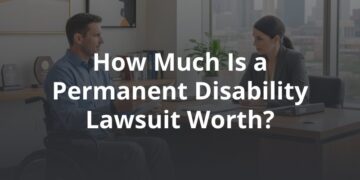One complaint we hear all too often from accident victims is that they can’t afford to pay hospital bills. Enormous hospital bills are an unfortunate reality for many individuals injured in accidents. This is because hospitals intentionally inflate bills in a way that particularly affects uninsured patients. While medical providers offer discounted rates to patients with health insurance, those patients who are uninsured are liable for prices that can be many times higher.
Billing practices like these result in inflated charges and surprise bills that leave accident victims financially vulnerable at a particularly challenging time. While there are many alternative payment structures in place that can help you afford hospital bills — funds, payment plans, and the like — it is also possible to reduce hospital fees through negotiation.
Here are a few issues to watch for as you review accident hospital bills, and how an experienced personal injury lawyer can help you fight these types of inflated charges.
Using “Chargemaster” Pricing
One of the most notorious hospital billing practices is chargemaster pricing, which is when hospitals generate bills using a computerized database of services and their costs. Although that may not seem unreasonable, it’s actually a way to drive up prices for hospital treatments.
Chargemasters list services at the fully allocated price — that is, one that is often several times more than the discounted rates offered to insurance providers. Patients who are uninsured or out of that service provider’s network are automatically charged these highly inflated prices. In some cases, the use of chargemasters may result in upcoding: when hospitals bill for the most complex and costly procedures, at prices that do not accurately reflect the level of treatment the patient actually received.
A new federal law requires hospitals to publicly post chargemaster prices. However, services are often listed by their chargemaster codes, which makes prices difficult to understand. Pricing may be unclear or inconsistent as well; for instance, NBC News describes one hospital’s documentation, which includes two billing codes for finger fracture treatments: “TREAT FINGER FRACTURE EACH” for $479 and “TREAT FINGER FRACTURE.EACH” for $8,121. What makes one procedure more expensive than the other is anyone’s guess.
Charging Unreasonable Prices
Another technique used to inflate medical bills is simply overcharging patients for services. Hospitals have a lot of leeway in setting prices, and they may charge individuals thousands or even tens of thousands more than what they bill medicare or insurance for similar treatments.
A recent Texas Supreme Court case offers a textbook example of this practice. The case, In re North Cypress Medical Center Operating Co., Ltd., involved an uninsured plaintiff who had been treated at a hospital after sustaining injuries in a car wreck.
After her treatment she was sent an enormous hospital bill, which the claimant then attempted to reduce through negotiation. Instead, the hospital refused to negotiate since they had already issued a hospital lien on her settlement.
The claimant then asked to obtain records detailing how much health insurance companies pay for similar procedures, which the hospital refused to produce. The Texas Supreme Court upheld the plaintiff’s right to access this information, holding that the information was relevant to whether the hospital’s full-price bill was reasonable.
Unfortunately, this practice is all too common. Uninsured and “self pay” patients — those who pay out of pocket for medical services — are charged an average 2.5 times as much as insured patients. The gap in costs depends on where you’re treated; according to data reported on by The Washington Post, some hospitals charge uninsured patients more than 10 times what they bill Medicare. That includes Texas General Hospital, located in Grand Prairie.
The good news, however, is that accident victims do not have to swallow large hospital bills without a fight. As the In re North Cypress case illustrates, the right lawyer can achieve outstanding results by being willing to fight for clients’ rights for a reasonable hospital bill.
Adding Fees to Your Bill
Fees are an easy way for medical providers to bake hidden costs into your bill. Hospital patients often receive statements containing mysterious fees: administrative fees, facility fees — the list goes on and on. Recipients of these bills typically have little to no insight into how fees are generated or what they’re really paying for.
Facility fees are among the most pervasive undisclosed hospital fees. Commonly referred to as a “room charge,” when hospitals bill for facility fees, they’re essentially charging patients for sitting in a room. As Wisconsin state Rep. Chuck Benedict put it, “It’s like a barber saying, ‘That’ll be $20 for a haircut and $10 for sitting in my chair.’” It’s estimated that facility fees generate $30,000 each year per hospital physician.
What’s worse, many insurance providers refuse to pay for these fees, which means that patients may receive surprise bills demanding hundreds or even thousands of dollars for their treatment — even when they have insurance. For example, The Cleveland Plain Dealer recounts the story of one patient who paid a $30 copay for hospital services, only to receive a bill later for $3,000 in facility fees.
The bottom line is that hospital patients deserve more transparency into how hospital bills are generated — and a chance to fight for fairer costs for medical treatments. While changing hospital billing practices will likely depend on the intervention of lawmakers and advocates, a personal injury lawyer can help you deal with hospital bills today by negotiating on your behalf for reduced costs.
A personal injury firm like FVF will explain what you’re actually being charged for and what you can do if you can’t pay hospital bills. Contact us today for a free case evaluation, and start fighting for more reasonable medical charges.








